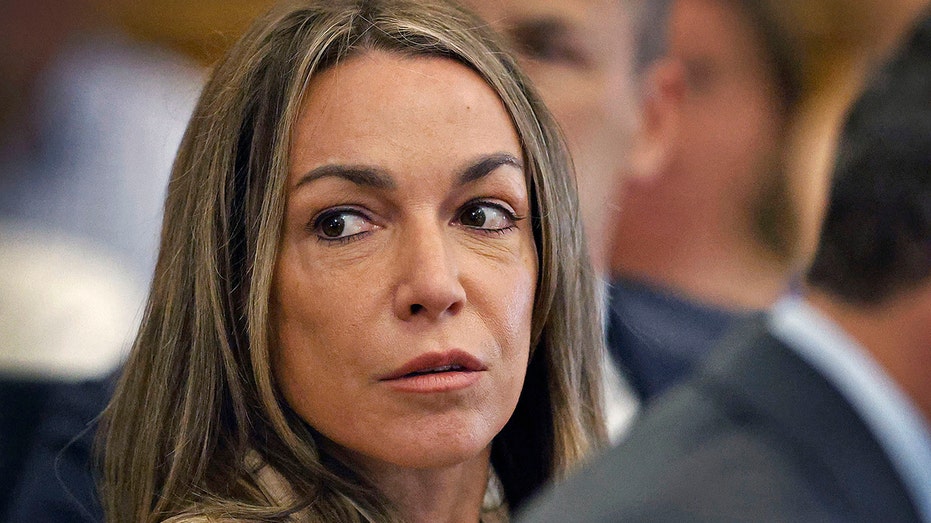Karen Read Defense Challenges Crash Expert Over $400K Cost and Testing Techniques
Defense questions crash expert’s costly experiments and presentation changes amid Karen Read’s trial for John O’Keefe’s death.

As the high-profile trial of Karen Read reaches a critical phase, her defense team intensified its efforts to challenge the credibility of the prosecution's key crash reconstruction expert. This comes as the state closes in on resting its case against Read, who is accused of striking and killing her boyfriend, Boston police officer John O’Keefe, with her Lexus SUV in January 2022.
The state's final witness, Dr. Judson Welcher, a crash investigator from Texas-based Aperture LLC, reiterated his conclusion that evidence from the scene—including the nature of O’Keefe’s injuries and vehicle data—supports the theory that Read’s Lexus was involved in the fatal impact. "O’Keefe’s injuries are consistent with being struck by a Lexus and contacting a hard surface, such as frozen ground," Welcher told prosecutors during his testimony.
However, under pointed cross-examination, defense attorney Robert Alessi pressed Dr. Welcher on the timing and substance of changes made to a PowerPoint presentation used in court. Welcher admitted to altering the presentation multiple times throughout the trial, most recently just minutes before testifying. He explained some amendments were prompted by objections from the defense, as well as rulings from the judge that limited what evidence could be referenced.
Welcher maintained that the core findings of his report were not affected by these adjustments. "I changed one slide," he said, clarifying that the overall presentation remained essentially intact. The changes, he insisted, were minor and did not alter his conclusions regarding the mechanics of the incident.
Defense attorneys also zeroed in on the financial arrangements between the crash expert and the district attorney’s office, revealing that Aperture LLC stands to earn over $400,000 for eight months of work related to the investigation—a figure that includes reimbursement for the cost of a test vehicle. Thus far, the firm has received $44,510, but bills are expected to climb, fueling the defense’s attempt to raise questions about objectivity and thoroughness.
Retired Massachusetts Superior Court Judge and current Boston College law professor Jack Lu commented on Welcher’s performance in court, saying, "Dr. Welcher was perfect on direction, but only a B- on cross-examination. He is not answering the questions from Mr. Alessi directly. He may not be intentionally being evasive, but he’s no longer a near-perfect example of how an expert witness should testify."
The defense moved beyond financial scrutiny to challenge the scientific rigor of the expert’s accident reconstruction tests. Alessi highlighted that key experiments, such as the "blue paint test" simulating contact with the vehicle, were conducted with the SUV moving at just two miles per hour—far below the speed reportedly involved in the actual incident. When pressed, Welcher responded, "I was not going to hit myself with the Lexus at 20 miles an hour," acknowledging the inability to precisely replicate the conditions surrounding O’Keefe’s death.
Alessi also questioned Welcher’s assumptions regarding the position of O’Keefe’s body at the moment of impact and the resulting injuries. Welcher conceded that exact parameters were unknown, but stood by his methodology: "We don’t know his exact body position at the point of impact, nor do we know the exact position on the ground. Which is part of the reason why I haven’t tried to exactly simulate this, because we don’t have enough parameters to do that."
Throughout the proceedings, Welcher continued to assert that, despite the gaps, his findings were reliable based on available data. Still, the defense’s aggressive approach appeared designed to plant seeds of doubt in the minds of jurors about the certainty and impartiality of the state’s expert analysis.
Karen Read, who has pleaded not guilty, faces life in prison if convicted of the top charge of second-degree murder. As the state prepares to wrap up its case, courtroom observers note that both prosecution and defense have been professional yet at times unfocused, with Judge Lu describing the interactions as "a very nice judge meets a very nice lawyer," ultimately leading to a "looser, less-focused cross-examination."
The closely watched trial continues, with the defense expected to launch its full case in the coming days.




